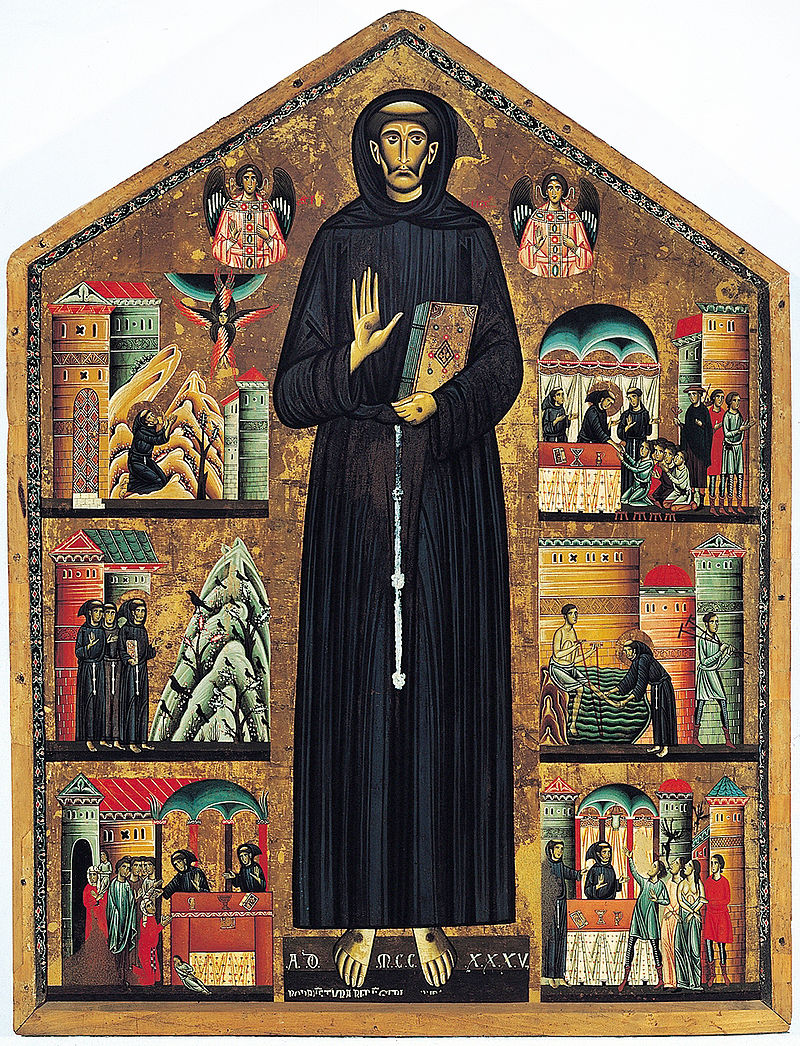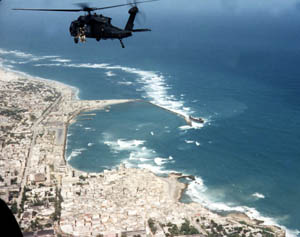The 1981 Irish hunger strike was the culmination of a five-year protest during The Troubles by Irish republican prisoners in Northern Ireland. The protest began as the blanket protest in 1976, when the British government withdrew Special Category Status for convicted paramilitary prisoners. In 1978, after a number of attacks on prisoners leaving their cells to "slop out", the dispute escalated into the dirty protest,
where prisoners refused to leave their cells to wash and covered the
walls of their cells with excrement. In 1980, seven prisoners
participated in the first hunger strike, which ended after 53 days.
The second hunger strike took place in 1981 and was a showdown between the prisoners and the Prime Minister,
Margaret Thatcher. One hunger striker,
Bobby Sands,
was elected as a Member of Parliament during the strike, prompting
media interest from around the world. The strike was called off after
ten prisoners had
starved themselves to death—including Sands, whose funeral was attended by 100,000 people. The strike radicalised
nationalist politics, and was the driving force that enabled
Sinn Féin to become a mainstream political party.
(...)
The second hunger strike began on 1 March, when
Bobby Sands, the IRA's former
Officer Commanding
(OC) in the prison, refused food. Unlike the first strike, the
prisoners joined one at a time and at staggered intervals, which they
believed would arouse maximum public support and exert maximum pressure
on Prime Minister
Margaret Thatcher.
The republican movement initially struggled to generate public support
for the second hunger strike. The Sunday before Sands began his strike,
3,500 people marched through west Belfast; during the first hunger
strike four months earlier the marchers had numbered 10,000. Five days into the strike, however,
Independent Republican MP for
Fermanagh and South Tyrone Frank Maguire died, resulting in a
by-election. There was debate among nationalists and republicans regarding who should contest the election:
Austin Currie of the
Social Democratic and Labour Party expressed an interest, as did Bernadette McAliskey and Maguire's brother Noel.
After negotiations, and implied threats to Noel Maguire, they agreed
not to split the nationalist vote by contesting the election and Sands
stood as an
Anti H-Block candidate against
Ulster Unionist Party candidate
Harry West. Following a high-profile campaign the election took place on 9 April, and Sands was elected to the
British House of Commons with 30,492 votes to West's 29,046.
Sands' election victory raised hopes that a settlement could be
negotiated, but Thatcher stood firm in refusing to give concessions to
the hunger strikers. She stated "We are not prepared to consider special
category status for certain groups of people serving sentences for
crime. Crime is crime is crime, it is not political".
The world's media descended on Belfast, and several intermediaries
visited Sands in an attempt to negotiate an end to the hunger strike,
including
Síle de Valera, granddaughter of
Éamon de Valera,
Pope John Paul II's personal envoy
John Magee, and
European Commission of Human Rights officials. With Sands close to death, the government's position remained unchanged, with
Secretary of State for Northern Ireland Humphrey Atkins
stating "If Mr. Sands persisted in his wish to commit suicide, that
was his choice. The Government would not force medical treatment upon
him".
On 5 May, Sands died in the prison hospital on the sixty-sixth day of
his hunger strike, prompting rioting in nationalist areas of Northern
Ireland.
Humphrey Atkins issued a statement saying that Sands had committed
suicide "under the instructions of those who felt it useful to their
cause that he should die".
Over 100,000 people lined the route of his funeral, which was
conducted with full IRA military honours. Margaret Thatcher showed no
regret for his death, telling the
House of Commons
that, "Mr. Sands was a convicted criminal. He chose to take his own
life. It was a choice that his organisation did not allow to many of its
victims".
Memorial mural along Falls Road, Belfast
Participants who died on hunger strike
Over the summer of 1981, ten hunger strikers had died. Their names,
paramilitary affiliation, dates of death, and length of hunger strike
are as follows:
| Name | Paramilitary affiliation | Strike started | Date of death | Length of strike | Reason for imprisonment |
| Bobby Sands | IRA | 1 March | 5 May | 66 days | Possession of a handgun |
| Francis Hughes | IRA | 15 March | 12 May | 59 days | Various offences, including the murder of a soldier |
| Raymond McCreesh | IRA | 22 March | 21 May | 61 days | Attempted murder, possession of a rifle, IRA membership |
| Patsy O’Hara | INLA | 22 March | 21 May | 61 days | Possession of a hand grenade |
| Joe McDonnell | IRA | 8 May | 8 July | 61 days | Possession of a firearm |
| Martin Hurson | IRA | 28 May | 13 July | 46 days | Attempted murder, involvement in explosions, IRA membership |
| Kevin Lynch | INLA | 23 May | 1 August | 71 days | Stealing shotguns, taking part in a punishment shooting |
| Kieran Doherty | IRA | 22 May | 2 August | 73 days | Possession of firearms and explosives, hijacking |
| Thomas McElwee | IRA | 8 June | 8 August | 62 days | Manslaughter |
| Michael Devine | INLA | 22 June | 20 August | 60 days | Theft and possession of firearms |











_1989%2C_MiNr_851.jpg)


_-_2008.jpg)

.jpg/800px-Gwen_Stefani%2C_No_Doubt_(crop_2).jpg)





.svg/450px-Flag_map_of_Germany_(separation).svg.png)




